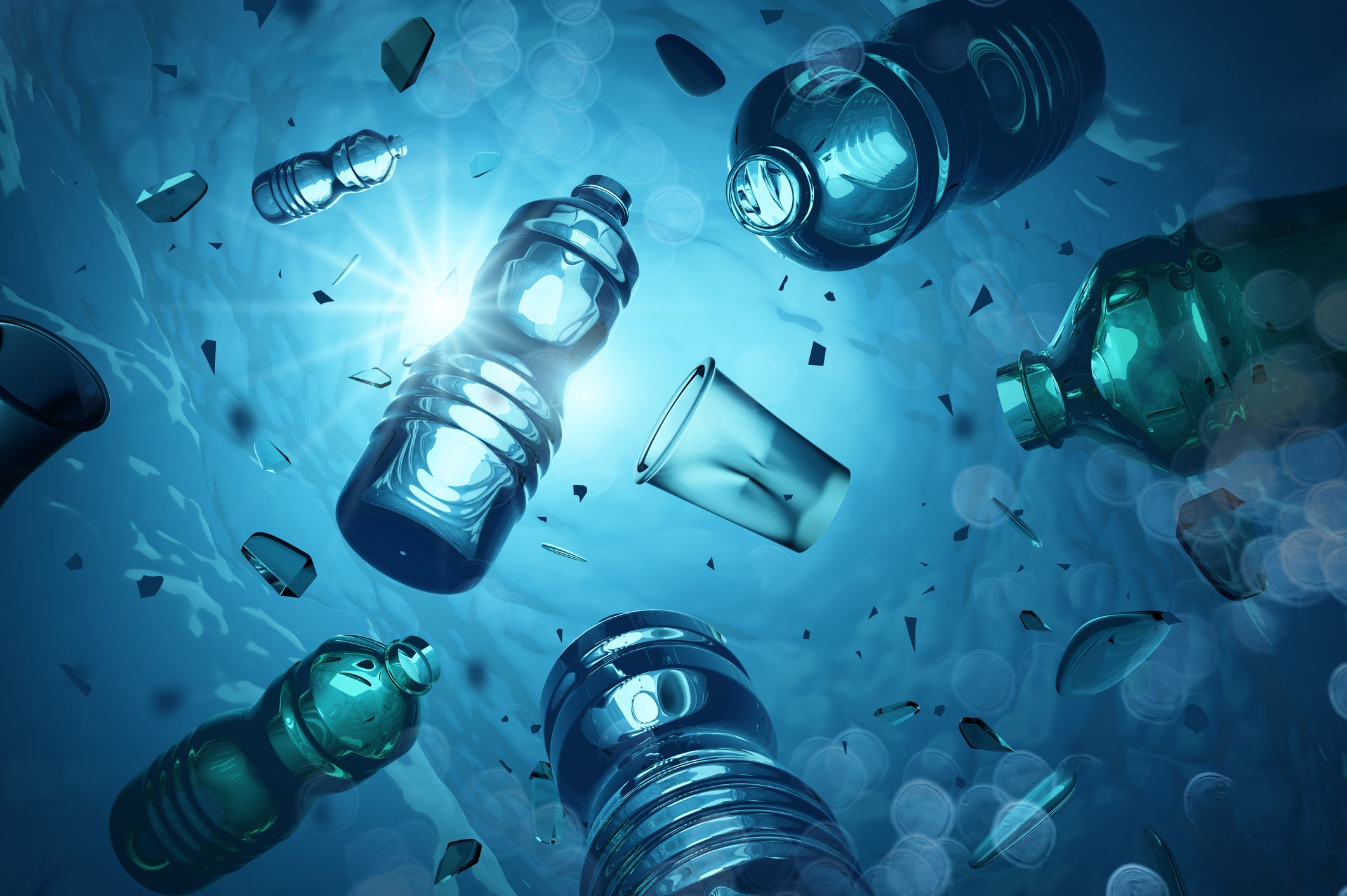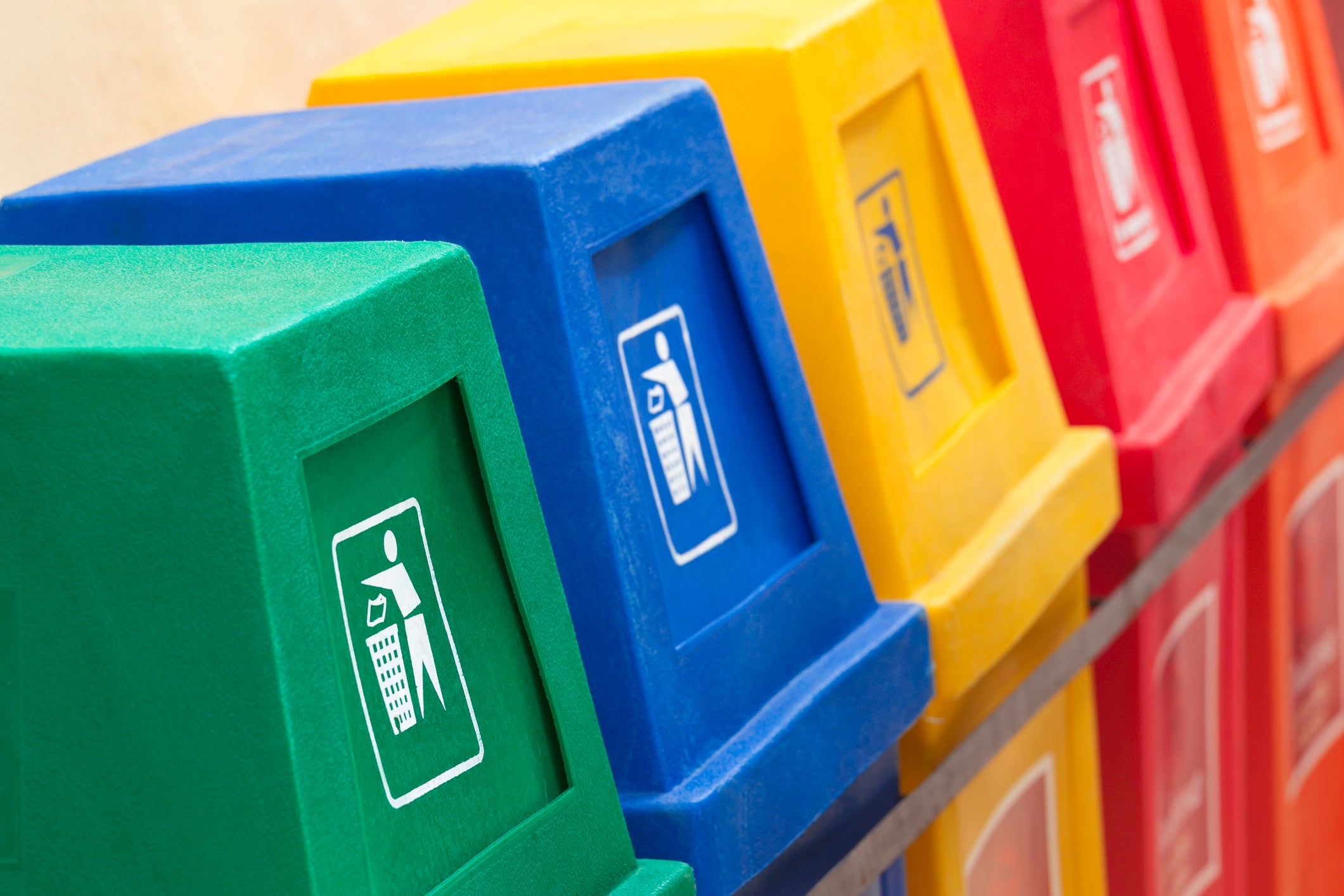Recycling Day: Does it matter if I put the wrong things in the recycling bins?
Louise Boyle answers your most frequently Googled questions about sustainable living


Your support helps us to tell the story
From reproductive rights to climate change to Big Tech, The Independent is on the ground when the story is developing. Whether it's investigating the financials of Elon Musk's pro-Trump PAC or producing our latest documentary, 'The A Word', which shines a light on the American women fighting for reproductive rights, we know how important it is to parse out the facts from the messaging.
At such a critical moment in US history, we need reporters on the ground. Your donation allows us to keep sending journalists to speak to both sides of the story.
The Independent is trusted by Americans across the entire political spectrum. And unlike many other quality news outlets, we choose not to lock Americans out of our reporting and analysis with paywalls. We believe quality journalism should be available to everyone, paid for by those who can afford it.
Your support makes all the difference.Household recycling is one of the simplest actions each of us can take to fight the climate crisis. It might not feel revolutionary but sticking those empty milk cartons and cereal packets into the correct bins means less production of fuel-intensive virgin materials, and less items choking up landfills.
While world leaders, Germany, Austria, and South Korea, recycle about 60-70 per cent of household waste, the US is at a woeful 32 per cent, according to latest figures from the Environmental Protection Agency (EPA) in 2018. Overall, Americans are throwing away nearly $1bn of recyclables each year.
Meanwhile, the UK is recycling only about half of household waste.
The average Brit chucks out around 400kg of waste each year, about seven times their body weight.
To drive the green economy, recycling experts are urging the public to do more. And while there are variations from place to place, there remain some general principles to remember.
Clean, dry and loose
“We don’t want last night’s dinner,” says Anne Hitch, manager with UK charity Recoup which develops plastics recycling, tells The Independent. “A key thing with mixed, dry curbside recycling is keeping contamination levels to a minimum.” Scrape and rinse food and drink residue, soaking containers for more stubborn food items like peanut butter.
A big no-no is putting “things inside of things,” Ms Hitch says. “You might be tempted to put a plastic bottle inside a carton inside the cornflakes box but they need to be cleaned, squashed and separated.”
Cap it off
Unless your local recycling programme explicitly says so, leave caps on plastic bottles like ketchup, honey, shampoos, conditioners, or even trigger-types like kitchen cleaners. As long as they are emptied and clean.
Plastic caps hold value and sending them loose to the recycling plant means they risk slipping through the giant tumble dryer-like drum at the Materials Recovery Facility, which is wonderfully pronounced “Murf”.
Use recycling labels (and common sense)
If there’s no on-pack recycling label on a plastic bottle, in the UK it will still be accepted by local authorities, says Ms Hitch. And remember 84 per cent of local authorities also collect pots, tubs and trays. “Use common sense,” she adds but check locally if you’re uncertain.
Keep plastic bags and plastic wrap out of household recycling.
Carrier bags and heavy-duty plastic wrap - the kind which would cover a tray of soda cans, for example - should not be put in household recycling. Supermarkets and grocery stores increasingly have depositories where you can recycle these items.
Multi-layered pouches, like the kind used for pet food, cannot be recycled - although some pet food stores do accept them.

Spare a thought for the hand-sorters
To some extent, recycling household waste is done by hand so it matters what you put in there. Avoid anything that’s hazardous such as cans with paint in, aerosol cans and bottles with toxic liquids.
The same goes for PPE during the Covid-19 pandemic. It should go in the general waste bin. “Covid will be with us for some time so the industry is looking at solutions but for the moment, please don’t send contaminated waste to where someone might have to hand-sort it,” says Ms Hitch.
Don’t recycle organic material. Or these other things
Food waste and compostable utensils are not for the recycling but for backyard composting or a specified programme.
People throwing nappies and used sanitary products into recycling bins is a “challenge”, Ms Hitch says. Some other items to avoid include - pill blister packs, toothpaste tubes, wire hangers, crisp packets, salad bags, and pizza boxes.
Black plastic - used in TV dinner and takeout trays - needs to be checked out as rules vary.
Wacky things found in recycling - but please don’t
“A great big concrete block was put in the bottom of a bin,” says Ms Hitch. Other culprits have been children’s playsets such as an outdoor swing. Large items like these, along with household furniture, belong at Household Waste Recycling Centers.
“We once found some roadkill,” says Ms Hitch. “It appeared someone had run over a deer and put it in the recycling.”
Does it really matter that we keep recycling?
Definitely, says Ms Hitch. “I think it’s important that people realize their own individual behavior can make a difference collectively.”
At the moment, only 59 per cent of plastic bottles are being recycled in the UK, and the numbers are even lower for pots, tubs and trays – 33 per cent. In the US, paper products are recycled the most, while only about a quarter of glass and plastics remain woefully low at under 10 per cent.
“We’re not in everybody’s kitchen,” Ms Hitch says. “If a [plastic] bottle goes in the general waste that could have been recycled then it’s lost. We can’t get that back.
“The industry is grown commercially and it can only recycle what it gets. We need to understand that it’s a resource and keep levels of high-quality recycling up. If it’s put back into the system, we have an opportunity going forward to grow the green economy.”


Join our commenting forum
Join thought-provoking conversations, follow other Independent readers and see their replies
Comments